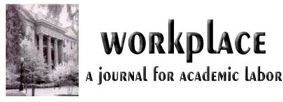The Chronicle: State Attorney General Seeks to Thwart Union for U. of Michigan Graduate Researchers
Michigan’s attorney general, Bill Schuette, is seeking to intervene in proceedings before that state’s Employment Relations Commission to try to get it to block graduate-student research assistants at the University of Michigan from unionizing. In a motion submitted to the commission on Wednesday, Mr. Schuette argues that the case “involves matters of significant public interest” because the unionization of the university’s graduate research assistants “has the potential to significantly damage” its reputation as a research institution. Leaders of the union drive responded by issuing a statement arguing that graduate researchers have a right to decide whether to unionize without outside interference. When the commission meets on December 13, it is expected to vote on asking an administrative-law judge to conduct a faculty inquiry into whether the university’s graduate-student research assistants should be thought of as employees eligible for unionization, or simply considered as students.
Links
Follow @icesubc
ICES
Workplace
Critical Education
New Proposals
AAUP
CAUT
CUFA BC
COCAL International
Chicago COCAL
Adjunct Nation
AFT Higher Ed
Rouge Forum
Freire Project
Critical Pedagogy (McLaren)
In Defence of Marxism
American Rights at Work
AERA Teachers' Work/Teacher Unions SIG
Association for Union Democracy
Unionist
Bread and Roses
Bread and Puppet
Campaign for Labor Rights
Coalition of Graduate Employee Unions
Coalition of Labor Union Women
Coalition on the Academic Workforce
Communicate or Die
Community Labor News
Free Exchange on Campus
How The University Works
Jobs With Justice
LearningWork.ca
LabourAgain
Labor Against the War
Labor Heritage Foundation
LaborNet
Union Book
Labor Notes
LabourStart
Scipes' Contemporary Labor Bibliography
Teacher Solidarity
Theory in Action: Journal of TSI
Transformative Studies Institute
University Politics
University World News
UWatch.ca
Workers Independent News Service
Working TV
Your Education MattersCategories
- Academic freedom (435)
- Academic Labor (23)
- Academics (318)
- Accountability (222)
- Adjuncts & Sessionals (24)
- Administration (772)
- Advocacy (157)
- Athletics (12)
- BC Education (132)
- Black Lives Matter (2)
- Budgets (5)
- Budgets & Funding (261)
- Bullying & Mobbing (8)
- Campaigns & Contracts (223)
- Campus Life (75)
- Censorship (13)
- CFPs (55)
- Chan Case (15)
- Commentary (114)
- Conferences (26)
- Contingent labor (185)
- Corporate University (341)
- Corruption (51)
- Courses (2)
- Crime (19)
- Critical University Studies (37)
- Culture (6)
- Diversity (166)
- Economics (88)
- Employment rights (111)
- Environment (12)
- Equity (308)
- Ethics (186)
- Events (23)
- Faculty (424)
- For Profit Universities (3)
- Free speech (264)
- Governance (174)
- Government (401)
- Human Rights (73)
- Idle No More (41)
- Institute for Critical Education Studies (12)
- Intellectual property (17)
- International (312)
- Job market (47)
- Just kidding (5)
- Just Kidding (not) (3)
- K-12 issues (131)
- Labor Programs (5)
- Legal issues (433)
- Maces (5)
- Media (26)
- mismanagement (1)
- Occupy (5)
- Open access (54)
- Organizing (212)
- Patronage (4)
- Philanthropy (3)
- Politics (87)
- Protests (430)
- Publications (54)
- Race (12)
- Regalia (4)
- Religion (2)
- Research (19)
- Safety & Security (24)
- Salary/Economic Benefits (268)
- Scandals (22)
- Sexual Discrimination, Harassment, Assault (2)
- Shared governance (23)
- Solidarity (178)
- Staff (5)
- Strikes (240)
- Strikes & Labor Disputes (779)
- Stuart Hall (1)
- Student Movement (154)
- Students (635)
- Teach-ins (2)
- Technology (23)
- Tenure & Promotion (168)
- UBC Dean Search (1)
- Uncategorized (392)
- Unions (483)
- Violence (23)
- Working conditions (338)
Bookmark & Share
Workplace CFPs
Top Labor News
Recent Comments
- Karen Connelly on Eve Seguin: Academic mobbing, or how to become campus tormentors #ubcnews #caut_acppu #ubceduc #highered
- anon on #UBC Dean time to come #ubcclean #ubc100 #ubcnews #bced #ubcgss
- Stephen Petrina on @ubcnews time to apologize to Gupta & #UBC members #ubc100 #ubcclean #ubcnews #bced
- Peter on @ubcnews time to apologize to Gupta & #UBC members #ubc100 #ubcclean #ubcnews #bced
- Peter on @ubcnews time to apologize to Gupta & #UBC members #ubc100 #ubcclean #ubcnews #bced
- Indio on #UBC admin exuberance to blame for Kinesiology controversy over $$ and buildings #ubc100 #ubcnews @ubcinsiders #ubysseynews #bced
- Stephen Petrina on Shared governance hits rock bottom at #UBC #ubc100 #ubcnews #ubysseynews #highered #bced #ubcgss
- Stephen Petrina on #UBC appoints VP communications in thick of PR disaster #ubc100 #ubcnews #caut #bced
- frank on #UBC appoints VP communications in thick of PR disaster #ubc100 #ubcnews #caut #bced
- E Wayne Ross on Pres Gupta returning to #UBC on Tuesday, Binky says #ubcnews #caut #bced #highered
Tags
AAUP Academic freedom Academics adjuncts Administration Admissions Athletics Budgets & Funding California Canada CFPs Contingent labor Contracts Corporate University Equity Ethics Faculty Free speech Governance Government Idle No More Israel Job cuts K-12 issues Layoffs Legal issues no confidence vote Organizing Protests Research Robert Felner Salary/Economic Benefits Scandal Strikes & Labor Disputes Students tenure Tenure & Promotion Termination UK Unions University presidents U of California U of Illinois Ward Churchill Working conditionsMeta
-
-
Authors

 Follow
Follow




